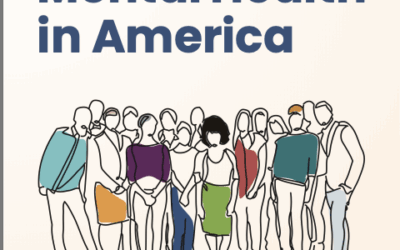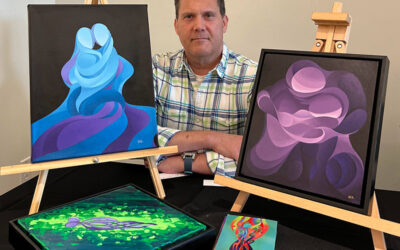**Trigger Warning: Sexual Violence/Assault**
In September 2017, Betsy DeVos, Secretary of Education, began the process of rescinding Title IX civil rights protections for students. For background, Title IX of the Education Amendments Act of 1972 is a federal law that states:
DeVos began rolling back years of progress protecting student survivors of violence in order to make the process “fairer” between the victims and the accused. Her justification devised from the idea that the accused were facing extreme punishments without “clear and convincing evidence”. This is problematic in many ways—especially that it suggests to survivors that they must relive their trauma by presenting stories that are “proof-heavy”. For survivors who do not have “proof” (such as physical evidence from a PERC test) or who want to share their stories months or years after the assault occurs, this creates a whole new set of hurdles. No survivor of violence should be told their story is not valid.
Released in the midst of COVID-19, the U.S Department of Education released the new rules, where universities across the country have until August 14th to implement new policies. The caveat is that universities risk losing funding from the federal government if they do not accept the new Title IX policies. For survivors of interpersonal violence who have also been impacted by the pandemic, these new rulings have put survivors and allies in burdensome positions. As summarized on the Know Your IX Website, the main points of the final rules include:
- Schools must dismiss any complaints of sexual misconduct that occur outside of campus-controlled buildings and/or educational activities → sexual violence that happens during study abroad programs or in off-campus locations are not covered under Title IX
- Colleges must allow live cross-examination by the ‘representative’ of each party’s choosing → survivors can be cross-examined by their perpetrators’ families, friends, or anyone of their choosing, which could risk re-traumatizing the survivor
- The new rule allows schools to drag students through lengthy and burdensome investigations without reason → investigations no longer have to be completed in 60 days, where they can now be dragged out for months and even a year, forcing survivors into an even more traumatizing process
- The definition of sexual harassment is narrowed to include only instances that are severe, pervasive, and objectively offensive → this implies to survivors their experiences and traumas are not valid unless they fall within this definition
- Unregulated mediation is allowed in cases of sexual assault, rape, dating violence, and domestic violence → adds an informal process that could risk creating even worse power dynamics between survivors and respondents
- Religiously-affiliated institutions can claim a Title IX exemption even after they are charged with discrimination → religious schools do not have to inform their students whether they are following Title IX
- It greatly reduces a school’s obligation to act against sexual harassment.
- You can only file a complaint against someone who attends your university.
As students and survivors are already facing the implications of COVID-19 and rising up against state-sanctioned violence toward people of color, the rolling back of Title IX is creating additional hurdles to achieving justice. COVID-19 could have unique impacts on survivors of violence—particularly college students who have been sent back to isolating or abusive home situations—as the extreme social isolation, loss in income, extreme stress, and barriers to support could re-traumatize survivors.
Additionally, the pandemic may present many challenges with their healing processes, Title IX investigations, and support systems at their college campuses. I know for my school’s Counseling and Psychological Services, video/phone therapy sessions were only permitted for students who reside in Virginia, due to the therapists’ licensing permissions. So, for those who have been accessing free psychological counseling on their campuses, the pandemic may have thrown a wrench in continuing their therapeutic services. For those whose homes are the places of sexual abuse/assault, college students may not be able to return home safely, or they have no choice but to return home and without feeling safe or may be subject to sexual abuse. All of these challenges that have arisen due to COVID-19 may present unique mental health challenges for this population.
Survivors of violence face daily challenges as is, and now the current federal administration is attempting to strip away the rights of survivors even further. Survivors of sexual and interpersonal violence face stigmas where their experiences are doubted, where they are blamed, and told their experiences are not valid. It is important to look at the unique mental health implications of sexual violence itself as well as the discrimination by society certain populations face.
For example, while male survivors do have a different set of privileges for being male, they often face additional stigma from society and support systems due to the misconceptions of male sexual violence. Male survivors are often not believed or told they are weak for not defending themselves; furthermore, they might face homophobia from their peers and families if the sexual violence was perpetrated by another male.
Furthermore, queer survivors face additional homophobic stigma, as our society focuses on heterosexual rape, but violence in fact takes many forms. Queer survivors are often stereotyped or told it was their fault for being victimized. They might be tokenized to represent all queer survivors, but this places immense pressure and reduces the experience of the person. For transgender, nonbinary, and gender non-conforming survivors of violence, they face the struggles of being a survivor of violence as well as the stigma for their gender identity. Campuses and police may deny trans folks’ gender identities, ask violating questions about their gender identity, or actively discriminate against them for being trans. For queer and trans survivors of color, too, university and legal systems may perpetuate additional racial biases (if you want to read more about the intersection of these identities—check out my last blog post).
Experiencing discrimination in addition to trauma from interpersonal violence is enough of a challenge as is, yet Betsy DeVos and the U.S. Department of Education want to limit survivors’ paths to justice even further. This has pushed survivors not only to face mental health challenges due to their traumas but also the risks of burn-out and fear of not being believed by authorities.
During these trying times for survivors, there are things allies and friends can do to support survivors of violence (either college-aged or not). There is hope for pressuring college campuses to support survivors by August 14th—I encourage you to research the actions student groups and individuals have taken on your campus so far. Universities across the country have until this date either to reject or accept the new proposals set forward by DeVos. If you are unsure where to start, I encourage you to check out the Know Your IX Website with talking points, actions to take, petition templates, and social media campaigns to fight against Title IX under DeVos.
There is hope for supporting survivors and preventing violence during COVID-19 and during the fight for justice against the new Title IX rules. If you, as an ally, are concerned about a particular friend who has survived violence, check-in on your loved ones and offer to listen if someone opens up to you about an adverse experience. Whether you are an ally and/or a survivor, reading articles like this one, caring for your loved ones, and participating in activism can be draining— focusing on your self-care is as important as ever right now during times of social isolation and extreme stress.
For survivors, student activists, and allies seeking support and resources, I have compiled a comprehensive list of services and information below. Please feel free to share these resources to help protect and provide support to survivors of violence during this fight against the new Title IX rules and during heightened stressors due to COVID-19.
Hotlines and Direct Support Services:
National Suicide Prevention Lifeline: 24/7, confidential, and free
- Call 1-800-273-8255 for distress, prevention and crisis resources for you or your loved ones, and best practices for professionals or online chat here
Mental Health America:
- Free online screening tools for mental health conditions here
- General resource list for COVID-19 and mental health here
- For Virginia constituents:
- The Mental Health America of Virginia Warm Line is available at 1-866-400-MHAV (6428) for mental health resources and referrals in Virginia
Crisis Text Line: 24/7, confidential, and free
- Free texting service that can be accessed by texting HOME to 741741 for free, 24/7 crisis counseling
Virginia Sexual and Domestic Violence Action Alliance: 24/7, confidential, and free
- Call 1-800-838-8238 or text 804-793-9999 for safety planning and support from the Family Violence and Sexual Assault Virginia Hotline, or if you’re unable to speak safely you can live chat here
- Call 1-866-356-6998 or text 804-793-9999 for support via the LGBTQ Partner Abuse and Sexual Assault Helpline, or if you’re unable to speak safely you can live chat here
National Domestic Violence Hotline: 24/7, confidential, and free
- Call 1-800-799-7233 or 1-800-799-7233 for TTY, or if you’re unable to speak safely, you can log onto thehotline.org or text LOVEIS to 22522.
- Para información en español, visita la página “En Español.”
- For Deaf Services, you can contact nationaldeafhotline@adwas.org or by calling 1-800-787-3224(TTY) or 1-855-812-1001(Video Phone)
- Staying Safe During COVID-19 Resource – here
National Sexual Assault Hotline: 24/7, confidential, and free
- Call 800.656.HOPE(4673), or if you’re unable to speak safely, you can log onto live chat here with a confidential staff member
StrongHearts Native Helpline: 7:00 a.m. to 10:00 p.m. daily, confidential, and free
- Call 1-844-7NATIVE (1-844-762-8483) to speak with an advocate
- Access a “what to expect when you call” information page here
Trans Lifeline Peer Support Hotline: 24/7, confidential, and free
- Call 877-565-8860 to speak with an operator who identifies as trans or gender non-conforming/questioning
- More information on the Trans Lifeline and its services are available here
National Helpline for Men Who Were Sexually Abused or Assaulted: 24/7, confidential, and free
- Log onto live chat here with a confidential staff member
The Loveland Foundation
- Access for Black women and girls apply for free mental health services through The Loveland Foundation Therapy Fund
- Learn more about the services and application process here
The Trevor Project: 24/7, confidential, and free
- A national organization providing crisis intervention and suicide prevention services to (LGBTQ) young people ages 13-24.
- Call 1-866-488-7386 to access the TrevorLifeline suicide prevention and crisis intervention phone service or online chat here
- Text START to 678-678 to access confidential, 24/7 TrevorText with a counselor
LGBT National Hotline: free and confidential, M-F 4:00 pm-midnight & Saturday noon-5 pm (EST)
- Call 888-843-4564 or email help@LGBThotline.org to talk and receive resources for different issues and concerns including, but not limited to, coming out issues, gender and/or sexuality identities, relationship concerns, bullying, workplace issues, HIV/AIDS anxiety, safer sex information, suicide, and much more
- For LGBTQ folks under the age of 25, access the LGBT National Youth Talkline by calling 800-246-7743 or by emailing help@LGBThotline.org
Virginia Anti-Violence Project LGBTQ+ Helpline, 24/7, confidential, and free
- Call 866-356-6998 or text 804-793-9999 for LGBTQ+ folks looking for information or help regarding intimate partner abuse, sexual assault, and stalking
- Access to live online chat here
- The VAVP also has individual support services and advocacy you can read here
Safe Harbor Shelter & Greater Richmond Regional Hotline, 24/7, confidential, and free
- Call 804-612-6126 to talk to someone about your experience with domestic and/or sexual violence and to access services at the Richmond Safe Harbor shelter and YWCA
Health Brigade
- Virginia’s oldest free clinic located in Richmond with medical, mental health, community outreach, and care coordination services for low-income and uninsured persons
- Call 804-358-6343 to speak to the medical clinic and check your eligibility to access services here
National Runaway Safeline: 24/7, confidential, and free
- Call 1-800-786-2929, text 66008, or access free online chat here to assist runaway, homeless, and at-risk youth with crisis intervention and safety planning services
St. Mary’s Hospital Forensic Nursing (Richmond): 24/7
- The forensic nurses can be reached through the Emergency Department at (804) 281-8184 or (804) 281-8574 during normal business hours
- Assist with child abuse, sexual abuse, physical abuse, domestic violence, intimate partner violence, elder abuse, and workplace violence
Additional Resources for Survivors:
- 2020 Action Alliance Directory of Sexual & Domestic Violence Member Agencies, for a comprehensive list of advocacy services in the state of Virginia
- “Staying Safe During COVID-19”, article and resources from the National Domestic Violence Hotline
- Coronavirus Aid, Relief, and Economic Security (CARES) Act information
- Womenslaw.org, legal resources for survivors and resources that help
- National Sexual Violence Resource Center (NSVRC), information for survivors, advocates, friends, family, and press inquiries
- Know Your IX, resources for survivors
- University of Richmond Center for Awareness, Response, and Education, survivor support
- Minnesota State University Mankato Resources for Victims, Survivors, Family, and Friends, information dedicated to intimate partner violence, sexual assault, stalking, and sexual harassment
- “Recovering from Rape and Sexual Trauma”, HelpGuide article with steps to healing
- Q&A: Violence against women during COVID-19, from the World Health Organization
- “Where to get help in Virginia if you’re experiencing domestic violence”, from 6News Richmond
Useful Articles, Links, and Resources for Allies and Activists:
- Know Your IX, resources for friends and family
- Know Your IX, college resources
- “8 ways to help survivors of sexual assault”, ways to be there for a survivor
- Resources on the Department of Education’s Final Title IX Regulation, with videos and information on the final Title IX campus sexual assault regulations
- “How Concerning Are the Trump Administration’s New Title IX Regulations?”, an article from the New Yorker
- ACLU Comment on Department of Education’s Final Title IX Rule on Sexual Harassment, from the American Civil Liberties Union with actions to take
- Know Your IX v. DeVos, legal document
- TIMES UP, an organization pushing for women to feel safe at work
- RAINN Student Activism, print materials, social media campaigns, survivor speaker series, and safety planning for students
- “#MeToo Won’t Succeed If We Don’t Listen to Black Women”, an article from Healthline discussing the importance of black female activism during #MeToo
- Stop Sexual Assault in Schools Activism Toolkit, a one-stop resource that helps parents and allies find out what their schools are doing about sexual harassment
- End Rape on Campus, working towards a world free from sexual violence
Anna Marston, Intern
Mental Health America of Virginia



